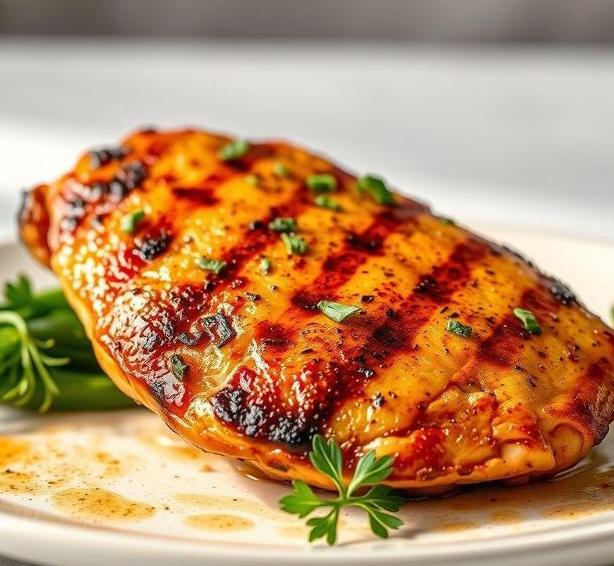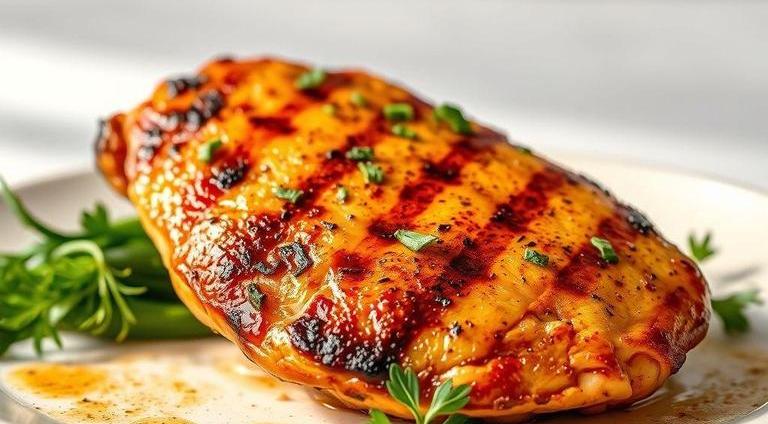Chicken breast is one of the most popular, versatile, and lean protein sources in kitchens around the world. Whether you’re grilling it, pan-searing it, or tossing it into a salad, chicken breast is a staple in many diets. However, as with all meats, chicken breast can spoil if not handled properly. Understanding how to store it, how long it lasts, and how to identify signs of spoilage can save you from potentially dangerous foodborne illnesses.
In this guide, we’ll take a deep dive into everything you need to know about chicken breast – from its shelf life to expert tips on how to store it safely. Let’s break it all down, so you never have to second-guess whether your chicken breast is still good to cook or not.
Can Chicken Breast Go Bad?
The short answer is yes. Chicken breast, like all fresh meats, is highly perishable. It contains a lot of moisture and protein, which, while making it great for cooking, also make it an ideal breeding ground for bacteria. Under improper conditions, it can spoil relatively quickly. The shelf life of chicken breast depends on several factors, including how it was stored, how fresh it was when purchased, and the temperature at which it’s kept.
So, whether it’s raw or cooked, chicken breast does have an expiration date. If you don’t follow the proper storage guidelines, it can spoil and even become unsafe to eat, putting you at risk of food poisoning.
Shelf Life For Chicken Breast

Understanding the shelf life of chicken breast helps you determine how long you can safely store it before it goes bad. Here’s a breakdown of how long chicken breast typically lasts in different conditions:
-
Raw Chicken Breast (Refrigerated)
- 2 to 3 days. After purchasing fresh chicken breast, you should aim to cook or freeze it within 1-2 days for optimal freshness. Even when refrigerated, raw chicken starts deteriorating after a couple of days, especially if left at temperatures higher than 40°F (4°C).
-
Raw Chicken Breast (Frozen)
- 9 to 12 months. When properly stored in an airtight container or freezer bag, raw chicken breast can last up to a year in the freezer. However, while it remains safe to eat, the quality might decline over time, with possible texture and flavor changes.
-
Cooked Chicken Breast (Refrigerated)
- 3 to 4 days. Once you’ve cooked your chicken breast, its shelf life is significantly shorter than raw chicken. Cooked chicken should be stored in the fridge and consumed within 3 to 4 days for safety.
-
Cooked Chicken Breast (Frozen)
- 2 to 6 months. If you freeze cooked chicken breast, it can last up to 6 months, but its taste and texture will be at their best if eaten within 2-3 months. Freezing cooked chicken breast can prevent bacteria growth, but it won’t keep the meat from drying out or losing its flavor over time.
Common Signs Of Spoilage
Knowing how to identify spoiled chicken breast is crucial to avoid health risks. While chicken breast may look fine on the outside, you should always check for the following signs to determine whether it’s still safe to eat:
- Color Changes: Fresh chicken breast should be pale pink or light beige. If you notice the meat turning gray, green, or a dark brown color, that’s a red flag. These color changes often indicate that bacteria have begun to break down the proteins, and the chicken is no longer fresh.
- Unpleasant Smell: One of the most telling signs of spoiled chicken is a foul, sour, or ammonia-like odor. Fresh chicken should have a mild, neutral smell. If the chicken emits an off-putting or sharp odor, discard it immediately, as this means it has gone bad.
- Slimy Texture: If the chicken feels slimy or sticky to the touch, that’s a sure sign of bacterial growth. Fresh chicken should have a firm, moist texture without being slimy. You can rinse the chicken with water to check, but if it’s slimy, it’s best to throw it out.
- Off-Tasting: If you’ve cooked the chicken and it tastes sour or odd in any way, that’s a strong indicator that it’s gone bad. Spoiled chicken often has a bitter or rancid flavor due to the bacteria and enzymes breaking it down.
- Excessive Discoloration or Separation: In cooked chicken, any significant change in color, like greenish hues or dried-out parts, could be a sign of spoilage. Likewise, if you notice the meat separating from the bone or texture issues like graininess, this may indicate deterioration.
How To Store Chicken Breast?
Proper storage is key to maintaining the freshness and safety of chicken breast. Here’s how you can make sure your chicken stays good for as long as possible:
Refrigeration

-
For Raw Chicken
- Place raw chicken breast in its original packaging, or transfer it to an airtight container or resealable bag. It’s also a good idea to place the chicken on a plate or tray to catch any potential leaks.
- Store the chicken on the bottom shelf of the refrigerator to prevent any juices from contaminating other foods.
-
For Cooked Chicken
- Once your chicken breast is cooked, allow it to cool slightly before storing it in an airtight container or wrapping it tightly in aluminum foil. Store it in the fridge immediately after cooling.
Freezing
-
For Raw Chicken
- If you don’t plan to cook the raw chicken within a couple of days, freezing is your best option. Wrap the chicken tightly in plastic wrap or freezer paper, followed by aluminum foil, or place it in a heavy-duty freezer bag. Make sure to remove as much air as possible to prevent freezer burn.
-
For Cooked Chicken
- To freeze cooked chicken breast, shred or chop the meat into bite-sized pieces before storing it in a freezer-safe container or bag. This makes it easier to use later, and freezing the meat in portions can help with meal planning.
Defrosting
- Always defrost chicken in the refrigerator for a safe thaw. Never leave it out at room temperature. If you need it quickly, you can use the microwave or submerge it in cold water (but this should be a last resort).
Expert Tips
- Label and Date: When storing raw or cooked chicken in your fridge or freezer, always label the packaging with the date you purchased or cooked the chicken. This will help you track its age and ensure you use it within a safe timeframe.
- Avoid Cross-Contamination: Raw chicken can carry harmful bacteria such as Salmonella and Campylobacter, so always store raw chicken separately from other foods, especially ready-to-eat items. Wash your hands and sanitize surfaces after handling raw poultry.
- Don’t Overcrowd the Fridge: When storing chicken in the fridge, make sure there’s enough space for air to circulate around it. Crowding the fridge can cause uneven cooling, which may allow bacteria to thrive.
- Use a Meat Thermometer: If you’re ever unsure about the safety of your chicken, use a meat thermometer to check that it’s cooked to a safe internal temperature (165°F or 74°C for chicken). This ensures the meat is safe to eat, even if you’re unsure of its shelf life.
FAQs
Can Chicken Breast Go Bad If Left Out Overnight?
Yes, chicken breast can go bad if left out overnight. The U.S. Department of Agriculture (USDA) recommends not leaving poultry at room temperature for more than two hours. After this time, bacteria can multiply rapidly, increasing the risk of foodborne illness.
How Can You Tell If Chicken Breast Has Gone Bad?
Signs that chicken breast has gone bad include a sour or off-putting smell, a slimy texture, and discoloration (such as grayish or greenish hues). Fresh chicken should be pink and firm to the touch.
Can Chicken Breast Go Bad In The Fridge?
Yes, chicken breast can go bad in the fridge. Raw chicken should be cooked or frozen within 1-2 days of purchase. Cooked chicken breast can last 3-4 days in the refrigerator when stored properly in an airtight container.
How Long Does Chicken Breast Last In The Fridge?
Raw chicken breast typically lasts 1-2 days in the refrigerator, while cooked chicken breast can last 3-4 days. Always store chicken at or below 40°F (4°C) to maintain freshness and safety.
Can You Eat Chicken Breast After The Expiration Date?
It is not recommended to eat chicken breast after its expiration date, as it may be unsafe. The expiration date is an indicator of the last day the chicken is safe to eat, and consuming it afterward could lead to foodborne illnesses.
Does Freezing Chicken Breast Prevent It From Going Bad?
Freezing chicken breast can extend its shelf life significantly. Raw chicken can be stored in the freezer for up to 9 months, while cooked chicken can last 2-6 months. However, freezing does not kill bacteria; it only prevents further growth.
What Should I Do If Chicken Breast Smells Bad?
If chicken breast smells bad, it is best to discard it. A foul odor is a sign that the chicken has spoiled due to bacterial growth, and consuming it could result in food poisoning.
Can Chicken Breast Go Bad After Being Cooked?
Yes, chicken breast can go bad after being cooked. If not stored properly or kept at a temperature above 40°F for more than 2 hours, bacteria can multiply and cause spoilage. Always refrigerate cooked chicken within 2 hours and consume it within 3-4 days.
Can Chicken Breast Be Used After It Turns Brown?
If chicken breast turns brown but does not have an off smell or slimy texture, it may still be safe to cook. However, browning can indicate oxidation, which may affect the flavor. Always check for other spoilage signs like smell and texture before deciding to use it.
Is It Safe To Cook Chicken Breast If It’s Been In The Fridge For 3 Days?
If the chicken breast has been stored in the fridge for 3 days, it should still be safe to cook, provided it has been stored at or below 40°F. However, always check for signs of spoilage such as a foul smell, sliminess, or discoloration before cooking.